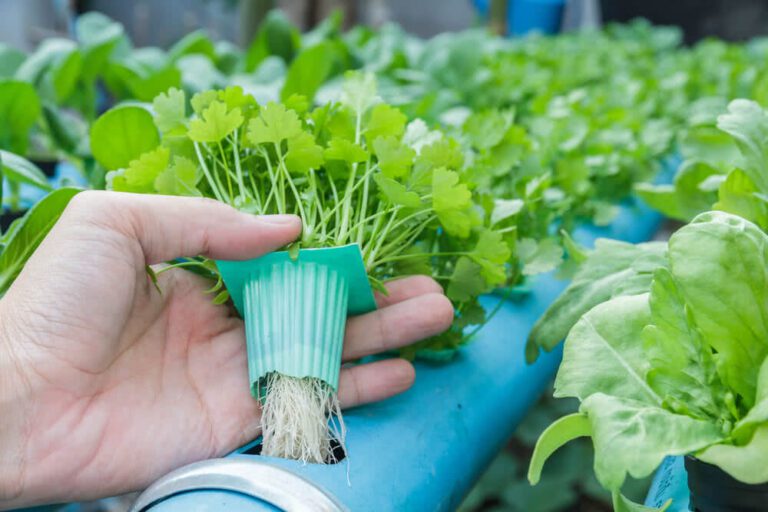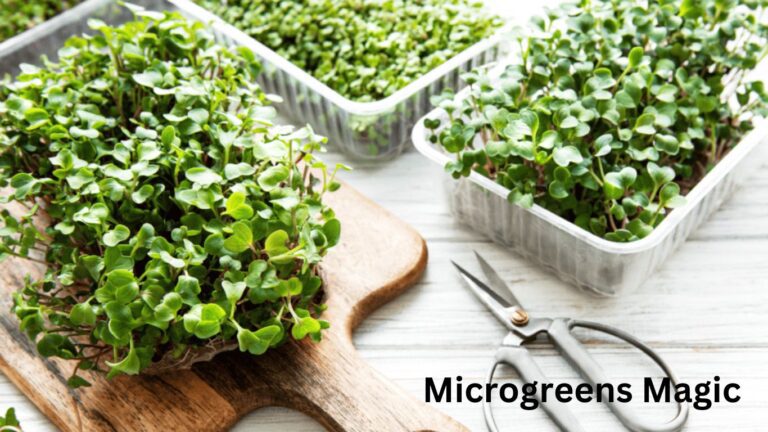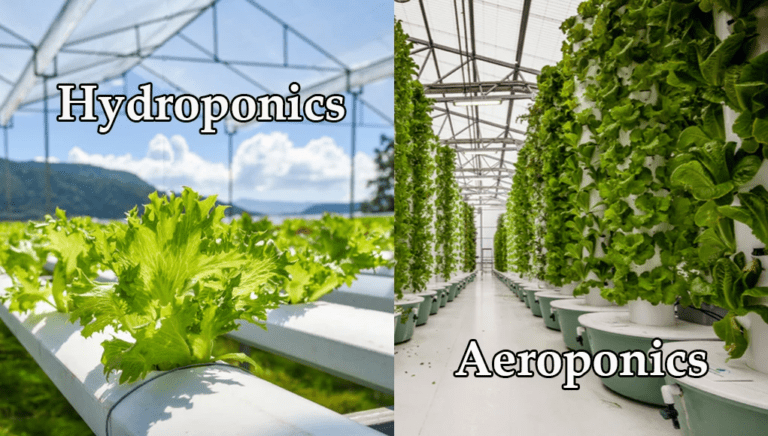How to Launch a Commercial Hydroponics Farm: Tips and Tricks
Selecting the Right Location: Evaluating various factors such as climate, access to resources, and proximity to markets when choosing the ideal location for your farm.
When it comes to selecting the right location for your hydroponics farm, there are several factors that need to be carefully evaluated. One of the key considerations is the climate of the area. Different crops thrive in different climates, so it’s essential to choose a location that provides the optimal conditions for your chosen crops. Whether you’re growing leafy greens, herbs, or fruits, ensuring that the climate is suitable will greatly contribute to the success of your farm.
Another important factor to take into account is access to resources. Hydroponics farms require a steady and reliable supply of water and electricity. Therefore, it’s crucial to select a location where these resources are readily available. Additionally, proximity to other essential resources, such as nutrient suppliers and plant-growing materials, should also be considered during the decision-making process.
Lastly, proximity to markets is an essential factor to evaluate. By choosing a location that is in close proximity to your target market, you can minimize transportation costs and reduce the time it takes to get your products to consumers. This can be particularly advantageous for perishable crops that have a limited shelf life. Additionally, being close to markets allows for better customer interaction, enabling you to build relationships with buyers and stay connected to the demand trends in the industry.
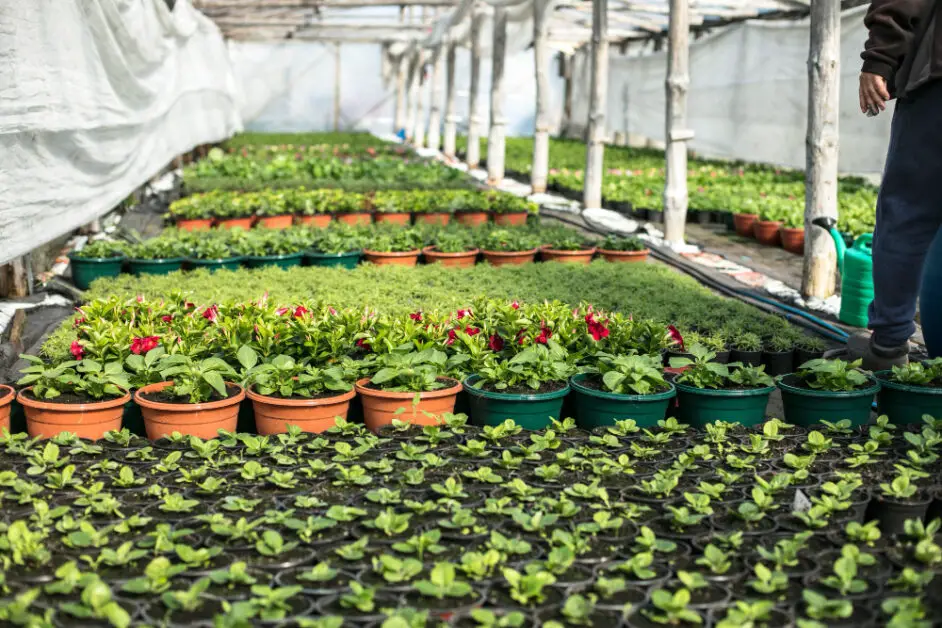
Overall, selecting the right location for your hydroponics farm requires a thoughtful assessment of climate, access to resources, and proximity to markets. By carefully considering these factors, you can set your farm up for success and maximize its potential for profitability and sustainable growth.
• Climate: Ensure the location provides optimal conditions for your chosen crops
– Different crops thrive in different climates, so choose accordingly
– Suitable climate greatly contributes to farm success
• Access to resources: Select a location with readily available water and electricity
– Hydroponics farms require steady and reliable supply of resources
– Consider proximity to nutrient suppliers and plant-growing materials
• Proximity to markets: Choose a location close to target market for transportation efficiency
– Minimize transportation costs and reduce product delivery time
– Particularly advantageous for perishable crops with limited shelf life
• Better customer interaction: Being close to markets allows for building relationships with buyers
– Stay connected to demand trends in the industry
– Enhance customer satisfaction and potential growth opportunities
Securing Funding: Exploring different financing options and creating a solid business plan to attract investors or secure loans for your hydroponics farm.
Securing funding is a crucial step in establishing your hydroponics farm. Exploring different financing options can help you identify the most suitable method for your unique needs. One option is attracting investors who see the potential in hydroponics farming and are willing to support your venture financially. Investors are often interested in the long-term profitability and sustainability of your business, so it is important to create a solid business plan that highlights these aspects.
Another financing option is securing loans from financial institutions or agricultural funding programs. These loans can be used to cover the initial setup costs, such as purchasing equipment, acquiring land, or building infrastructure. To increase your chances of obtaining a loan, it is essential to develop a comprehensive business plan that demonstrates how your hydroponics farm will generate a steady income and repay the loan. Additionally, having a good credit score and a clear understanding of the terms and conditions of the loan can improve your chances of financial success.
• Attracting investors who are interested in the potential and sustainability of hydroponics farming
• Creating a solid business plan that highlights long-term profitability and sustainability
• Securing loans from financial institutions or agricultural funding programs to cover setup costs
• Developing a comprehensive business plan that demonstrates income generation and loan repayment
• Maintaining a good credit score and understanding loan terms and conditions for financial success
Building a Knowledge Base: Gaining expertise in hydroponics farming techniques through courses, workshops, and networking with industry professionals.
To truly excel in the field of hydroponics farming, it is essential to build a strong knowledge base in this specialized farming technique. While hands-on experience is valuable, it is equally important to gain expertise through formal education, workshops, and networking with industry professionals.
One way to expand your knowledge is by attending specialized courses or workshops on hydroponics farming techniques. These programs provide a structured learning environment where you can acquire the theoretical understanding and practical skills necessary for success. Additionally, they offer the opportunity to interact with experienced instructors who can guide you through the intricacies of hydroponics and answer any questions you may have.
Networking with industry professionals is another invaluable way to build your knowledge base. Attending conferences, seminars, and industry events allows you to meet and connect with experts in the field. Engaging in meaningful conversations, exchanging ideas, and learning from the firsthand experiences of others can provide invaluable insights and perspectives that can enhance your own hydroponics farming practices.
By actively seeking out educational opportunities and engaging with professionals in the industry, you can ensure that your knowledge of hydroponics farming techniques remains up to date and relevant. The more you invest in building your knowledge base, the better equipped you will be to tackle the challenges and maximize the potential of your hydroponics farm.
• Attending specialized courses or workshops on hydroponics farming techniques provides a structured learning environment.
• These programs offer theoretical understanding and practical skills necessary for success in hydroponics farming.
• Interacting with experienced instructors allows for guidance through the intricacies of hydroponics and answers to any questions.
• Networking with industry professionals at conferences, seminars, and industry events is invaluable.
• Engaging in meaningful conversations and exchanging ideas can provide valuable insights and perspectives.
• Learning from firsthand experiences of others enhances your own hydroponics farming practices.
• Actively seeking out educational opportunities ensures that your knowledge remains up to date and relevant.
Designing the Farm Layout: Developing a well-thought-out farm layout that maximizes space, efficiency, and productivity.
Developing a well-thought-out farm layout is crucial for maximizing space, efficiency, and productivity in a hydroponics operation. The careful arrangement of growing systems, walkways, and other infrastructure can greatly impact the overall effectiveness of the farm.
One key consideration in designing the farm layout is the utilization of available space. With hydroponics, crops are grown vertically as well as horizontally, allowing for greater production density. By implementing techniques such as vertical farming and stacking systems, growers can maximize their use of space and increase crop yields. Additionally, strategic planning of walkways and access paths ensures easy movement for staff and facilitates efficient maintenance and harvesting processes.
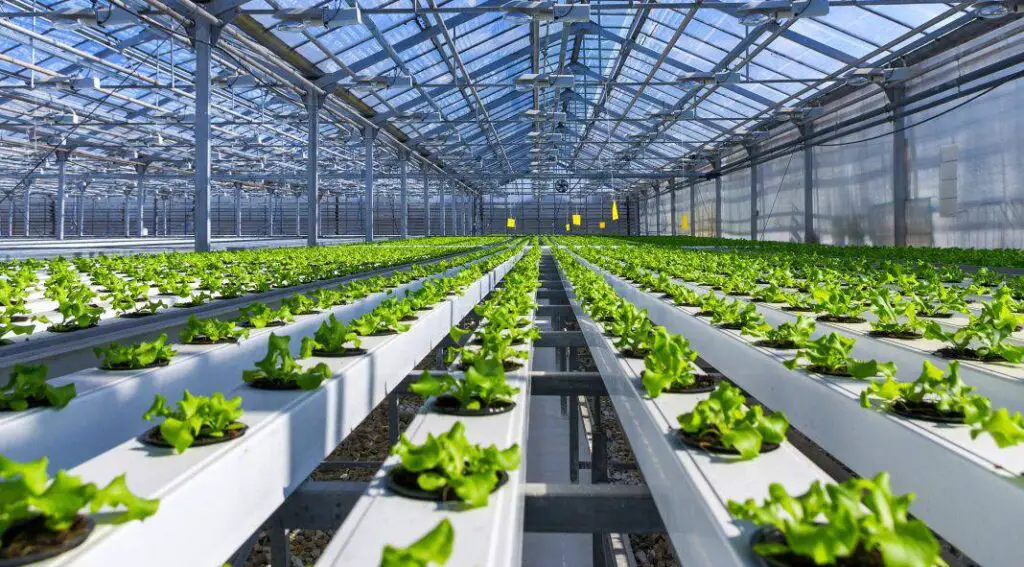
Efficiency is another important aspect to consider. The layout should be designed in a way that optimizes the use of resources such as water, nutrients, and energy. This can involve grouping similar crops together to allow for more streamlined nutrient and irrigation management. Implementing automated systems and smart technology can also help monitor and control environmental conditions, leading to more efficient resource allocation and reduced waste. Ultimately, a well-planned farm layout can minimize operational costs and maximize the return on investment.
• Vertical farming and stacking systems can maximize use of space
• Strategic planning of walkways and access paths for easy movement and efficient processes
• Grouping similar crops together for streamlined nutrient and irrigation management
• Implementing automated systems and smart technology for efficient resource allocation
• Minimizing operational costs and maximizing return on investment
Sourcing Quality Equipment and Supplies: Identifying reliable suppliers for hydroponic systems, lighting, nutrients, and other necessary equipment.
When embarking on your hydroponics farming journey, one crucial aspect to consider is sourcing quality equipment and supplies. Identifying reliable suppliers will ensure the efficiency and productivity of your system. It is essential to select suppliers that offer top-notch hydroponic systems, lighting solutions, nutrients, and other necessary equipment.
To start, do thorough research to find reputable suppliers known for their high-quality products and excellent customer service. Seek recommendations from other hydroponics farmers or industry professionals who can vouch for the reliability of certain suppliers. Additionally, consider checking online reviews and forums dedicated to hydroponics farming to gauge the experiences of other farmers with different suppliers.
When assessing potential suppliers, consider factors such as product quality, warranty options, and post-purchase support. Look for suppliers who provide detailed specifications and technical information about their products, as this demonstrates their commitment to transparency and knowledge sharing. Moreover, it is advisable to request product samples or arrange for a visit to their facilities to personally evaluate the equipment’s quality and durability.
By selecting reliable suppliers, you ensure that your hydroponics farm operates smoothly and efficiently, setting a strong foundation for success. Remember, investing in quality equipment and supplies from trusted sources is an investment in the long-term productivity and profitability of your farm.
• Thoroughly research reputable suppliers known for high-quality products and excellent customer service.
• Seek recommendations from other hydroponics farmers or industry professionals.
• Check online reviews and forums dedicated to hydroponics farming for experiences with different suppliers.
• Consider factors such as product quality, warranty options, and post-purchase support when assessing potential suppliers.
• Look for detailed specifications and technical information about the products offered by suppliers.
• Request product samples or arrange a visit to evaluate equipment quality and durability.
For further informatoin watch the video on starting a hydroponic farm.
Employing Skilled Staff: Hiring and training competent personnel with knowledge of hydroponics farming practices to ensure smooth operations.
Building a successful hydroponics farm requires employing skilled staff who possess in-depth knowledge of hydroponics farming practices. Hiring personnel with expertise in this field is crucial to ensure smooth operations and optimal plant growth.
When recruiting staff for your hydroponics farm, it is essential to focus on individuals who have a solid understanding of the principles and techniques involved in hydroponics cultivation. Look for candidates who have previously worked in similar environments or have educational backgrounds in hydroponics, horticulture, or agronomy. These individuals will bring valuable insights and expertise to your farm, allowing for efficient plant management and problem-solving.
Once you have assembled a team of knowledgeable professionals, investing in their training is key to enhancing their skills and ensuring they are up to date with the latest advancements in hydroponics farming. Provide them with access to workshops, seminars, and industry conferences that focus on hydroponics techniques and innovations. This continuous learning will empower your staff to implement best practices, troubleshoot issues, and optimize the overall efficiency of your hydroponics farm.
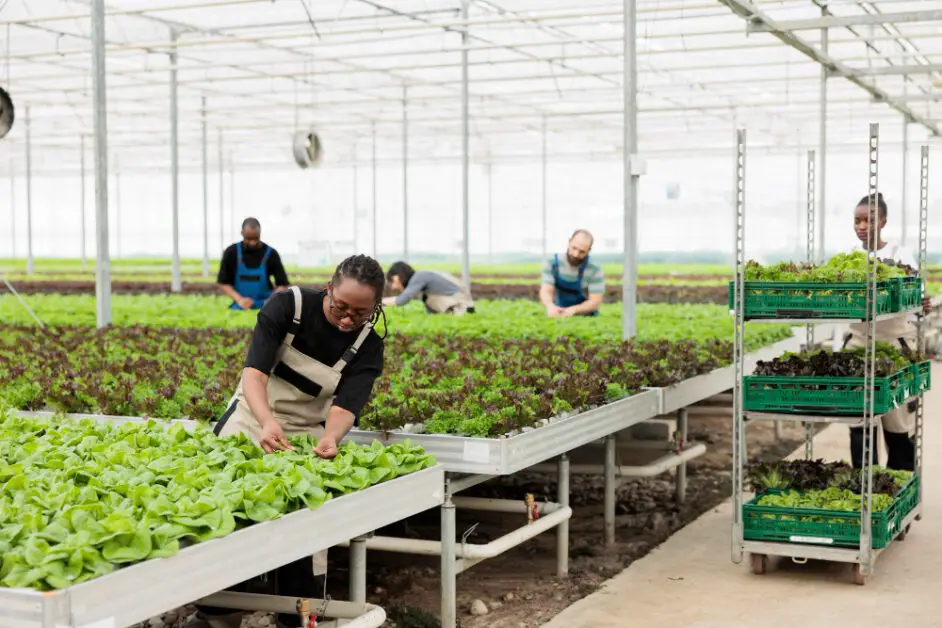
By prioritizing skilled personnel and investing in their development, you can establish a team that is capable of delivering exceptional results in your hydroponics farm. Their expertise will contribute to increased productivity, improved plant health, and ultimately, a successful and thriving hydroponics operation.
• Hiring personnel with expertise in hydroponics farming practices is crucial for smooth operations and optimal plant growth.
• Look for candidates who have previous experience or educational backgrounds in hydroponics, horticulture, or agronomy.
• These individuals will bring valuable insights and expertise to your farm, allowing for efficient plant management and problem-solving.
• Investing in the training of your staff is key to enhancing their skills and keeping them updated with the latest advancements in hydroponics farming.
• Provide access to workshops, seminars, and industry conferences that focus on hydroponics techniques and innovations.
• Continuous learning empowers your staff to implement best practices, troubleshoot issues, and optimize overall efficiency.
• Prioritizing skilled personnel contributes to increased productivity, improved plant health, and a successful hydroponics operation.
Selecting Suitable Crops: Determining the right mix of crops that are suitable for hydro
When it comes to selecting suitable crops for hydroponics farming, there are several factors to consider. One key factor is the crop’s adaptability to hydroponic systems. Certain crops, such as lettuce, spinach, and herbs, tend to thrive in hydroponic environments due to their shallow root systems and high water requirements. These crops can be grown efficiently and produce high yields in a hydroponic setup.
Another factor to consider is the market demand for specific crops. Conducting market research and analyzing trends can help determine which crops are in high demand and have the potential for greater profitability. For example, leafy greens and culinary herbs are popular choices for hydroponics farming, as they are sought after by restaurants, supermarkets, and health-conscious consumers.
It is also important to consider the feasibility of growing certain crops in a hydroponic system. Some crops, such as tomatoes, cucumbers, and peppers, require more space, support structures, and specialized techniques to be successfully grown hydroponically. These factors need to be taken into account when selecting crops for a hydroponic farm.
By carefully considering the adaptability, market demand, and feasibility of different crops, farmers can determine the right mix of crops that are suitable for hydroponics, ensuring a successful and profitable venture.
• Lettuce, spinach, and herbs are suitable crops for hydroponics due to their shallow root systems and high water requirements.
• Conduct market research to determine which crops have high demand and potential profitability.
• Leafy greens and culinary herbs are popular choices for hydroponics farming.
• Consider the feasibility of growing certain crops in a hydroponic system, such as tomatoes, cucumbers, and peppers.
• Factors like space requirements, support structures, and specialized techniques need to be taken into account when selecting crops for a hydroponic farm.
What are some important factors to consider when selecting the right location for a hydroponics farm?
When choosing a location for a hydroponics farm, it is important to evaluate factors such as climate, access to resources, and proximity to markets. These factors can greatly impact the success and profitability of your farm.
How can I secure funding for my hydroponics farm?
To secure funding for your hydroponics farm, you can explore different financing options such as applying for loans or attracting investors. Creating a solid business plan that showcases the potential profitability of your farm can help attract funding.
How can I gain expertise in hydroponics farming techniques?
You can gain expertise in hydroponics farming techniques by taking courses, attending workshops, and networking with industry professionals. These opportunities can provide valuable knowledge and insights to enhance your farming practices.
What should be considered when designing the layout of a hydroponics farm?
When designing the layout of a hydroponics farm, it is important to consider maximizing space, efficiency, and productivity. A well-thought-out farm layout can ensure optimal use of resources and improve overall operations.
Where can I find reliable suppliers for hydroponic systems and equipment?
To find reliable suppliers for hydroponic systems, lighting, nutrients, and other necessary equipment, you can conduct online research, explore industry trade shows, and seek recommendations from other hydroponics farmers.
How important is it to have skilled staff for a hydroponics farm?
Having skilled staff with knowledge of hydroponics farming practices is crucial for the smooth operations of a hydroponics farm. Proper hiring and training processes can help ensure the success and efficiency of your farm.
How do I determine the right mix of crops suitable for hydroponics?
Determining the right mix of crops suitable for hydroponics involves considering factors such as crop growth requirements, market demand, and profitability. Conducting market research and consulting with experts can help in making informed decisions.

Kanike Sreekanth, a prolific writer at SouthElMonteHydroponics, brings a unique blend of creativity and scientific rigor to the table. With a degree in Horticulture from a prestigious institution, Kanike’s expertise spans hydroponic farming, plant biology, and agricultural sustainability. Their passion for exploring innovative cultivation methods and promoting environmental stewardship drives them to uncover new insights in the realm of hydroponics. Kanike’s writing serves as a conduit for sharing their knowledge and inspiring others to embrace alternative farming practices for a more sustainable future.



